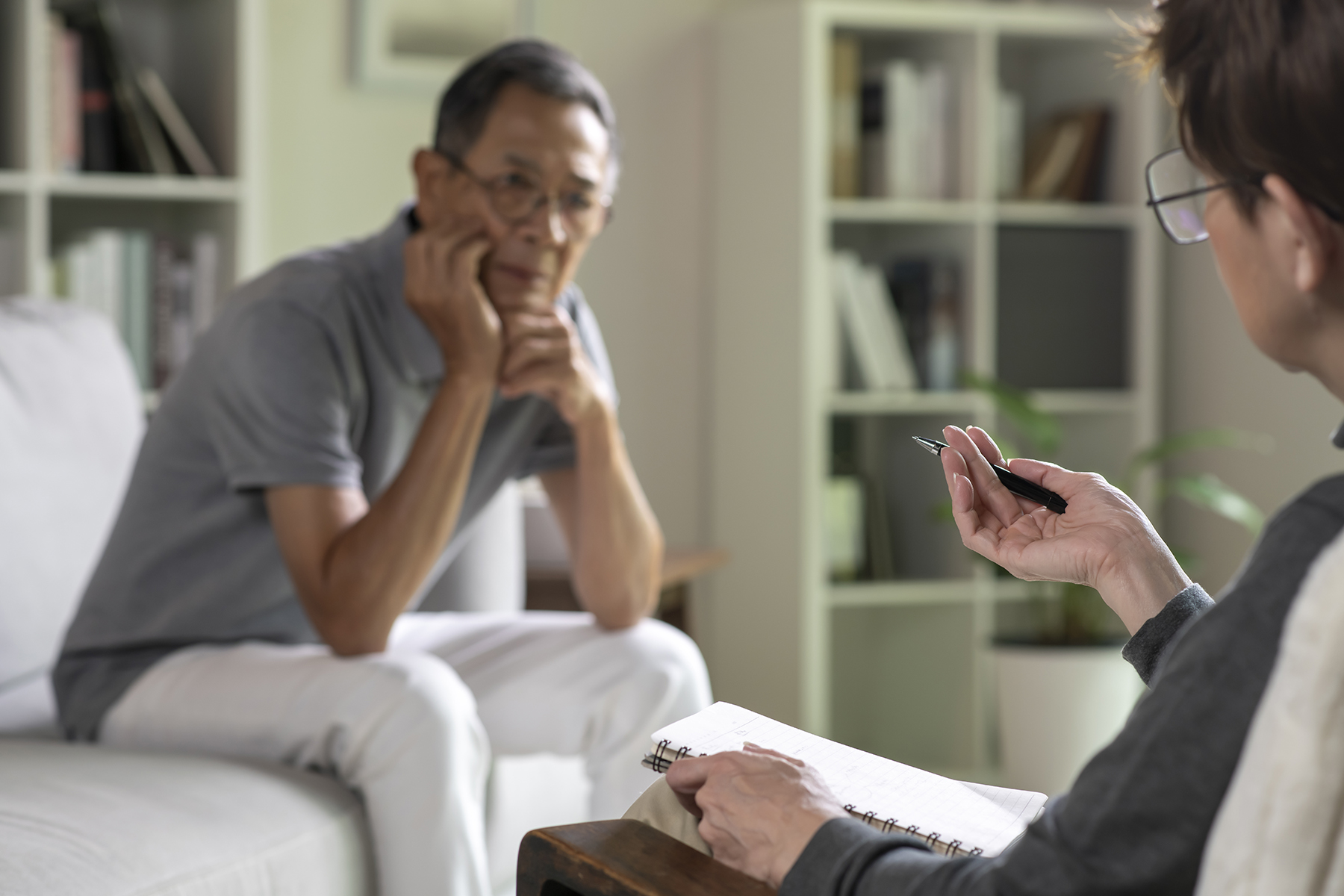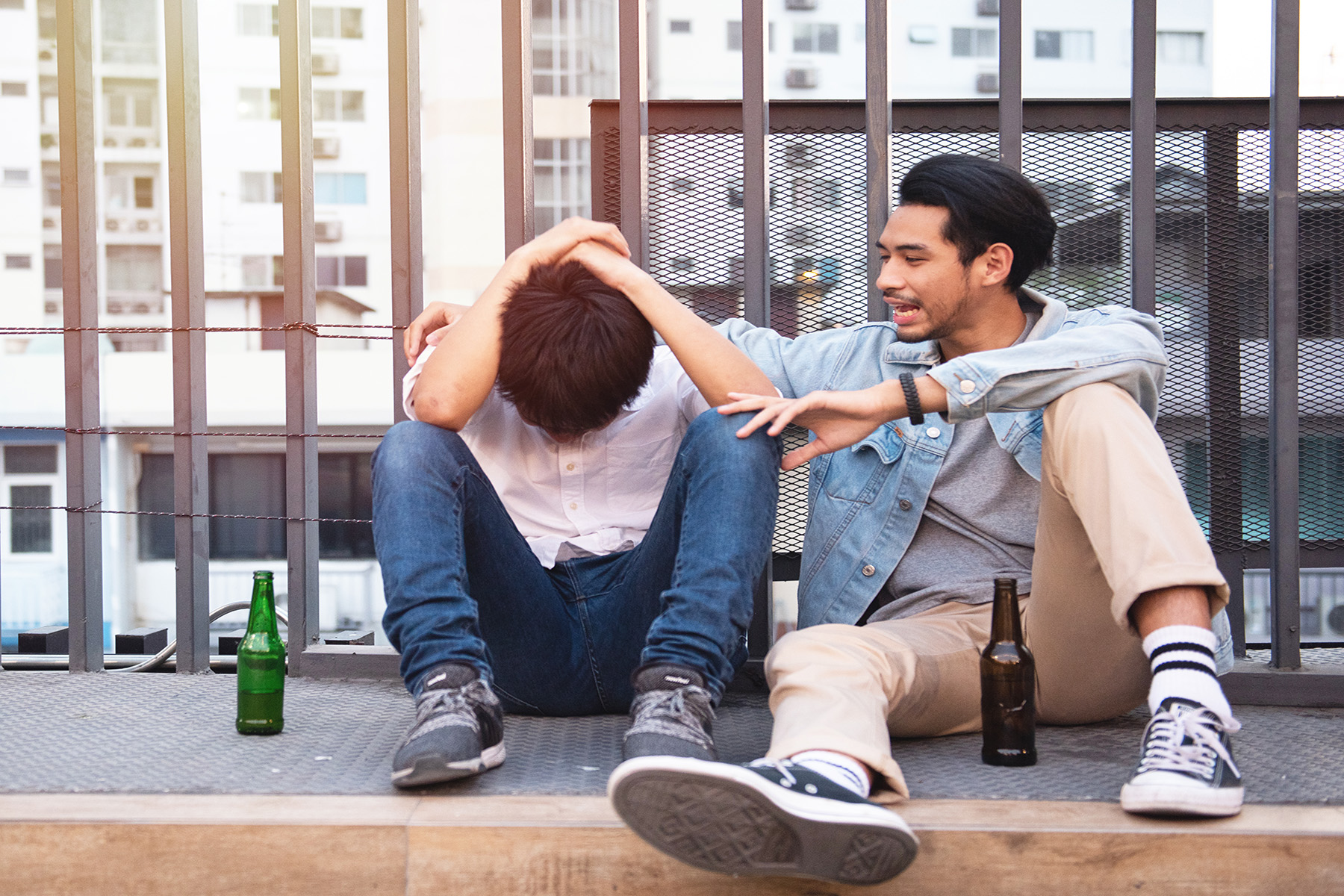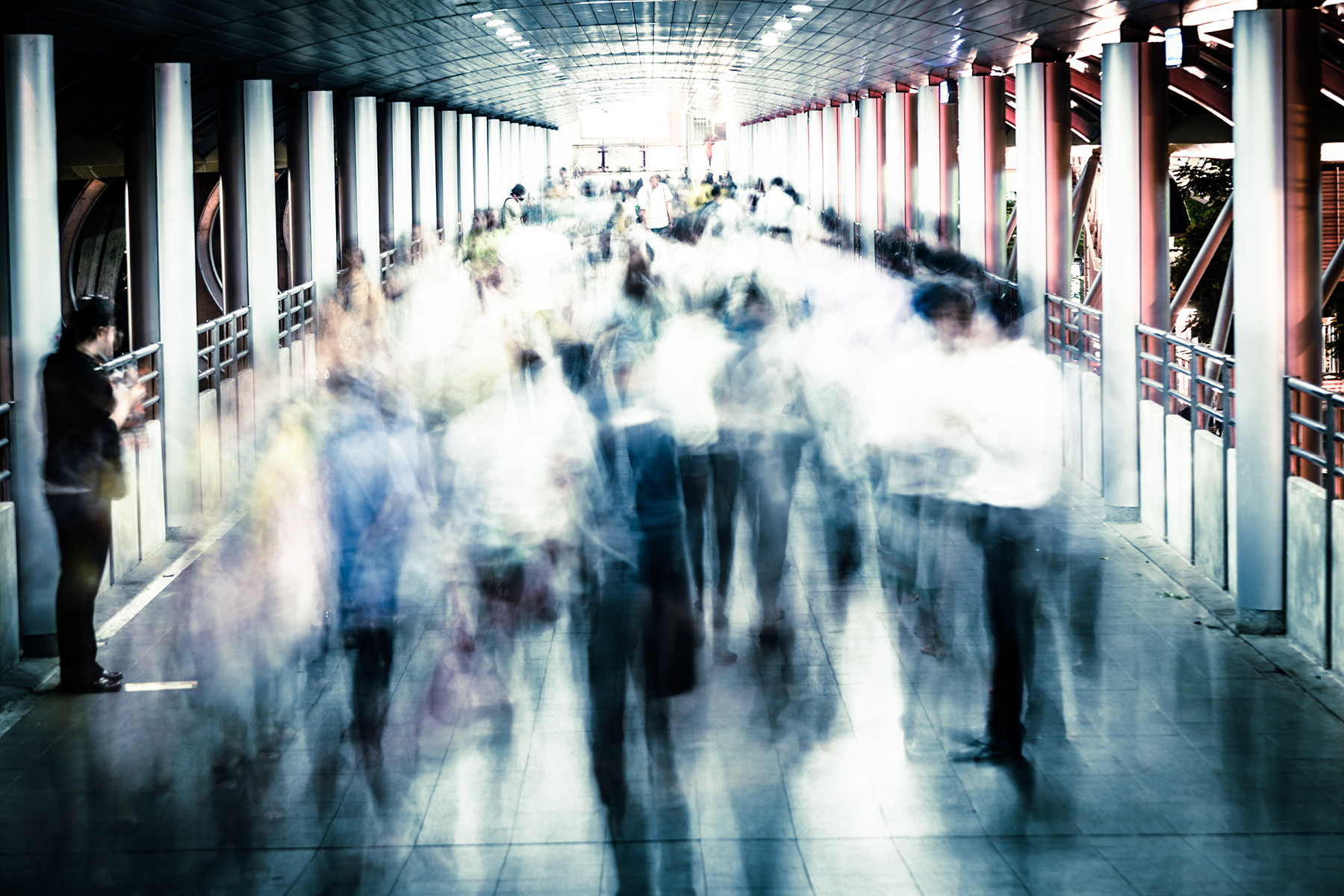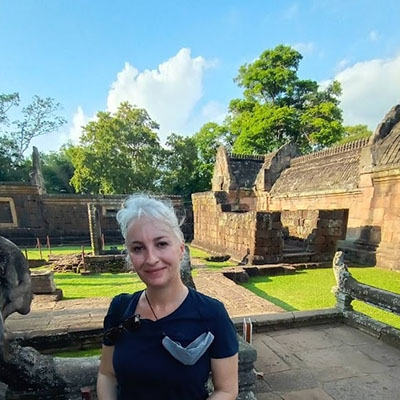Working and living in a new country and culture is exciting but challenging, especially if you struggle to communicate due to a language barrier, as may be the case in Thailand. Of course, this significant lifestyle change can affect your mental health.
Fortunately, Thai nationals can access mental health services through Thailand’s Universal Health Coverage (UHC). Expats can access mental healthcare privately with health insurance, depending on your immigration status.
Learn how to navigate Thailand’s mental healthcare landscape by exploring these topics:
Allianz Care
Allianz Care is a world leader in providing international health insurance. Their various premiums provide professionally designed solutions for a variety of expat lifestyles. So, wherever your life takes you, make sure you have the right health protection for you and your family with Allianz Care.
Mental health in Thailand
Mental health is a growing concern in Thailand, where stigma and lack of awareness have historically prevented people from seeking help.
The country has its own cultural traditions when dealing with mental health, where some beliefs associate such conditions with evil spirits (e.g., the Hill Tribes) or bad omens. As a result, it’s not uncommon for Thai people to see priests rather than medical professionals. This has led to societal stigma, especially in Thailand’s rural areas.

An estimated 1.5 million Thai people live with depression, according to the World Health Organization (WHO). A UNICEF (2022) study further found that 1 in 7 adolescents in Thailand struggle with mental health issues.
Sadly, Thailand also has one of the highest suicide rates in the region, with at least one suicide attempt made every 10 minutes. This crisis mainly affects the youth, where suicide is now the leading cause of adolescent death (UNICEF, 2021).
It’s impossible to look at these mental health statistics without linking the long-term impacts of the COVID-19 pandemic and its effect on both Thailand’s youth and tourist economy. However, suicide and depression were already a growing concern before the pandemic.
Fortunately, while mental health issues gain more prominence and urgency, so too does access to help. Some mental health services are covered under Thailand’s universal healthcare, which is available to Thai citizens, and there have been several public campaigns to raise mental health awareness and remove social stigma.
In Thailand, mental healthcare spending has also increased from 0.3% in 2017 to 2.3% in 2020 (WHO, Mental Health Atlas, 2020) of total government health expenditure. Many private and specialist institutions complement the public healthcare system, including a recent wellness tourism boom focusing on mental health concepts.
What mental healthcare services are available in Thailand?
The Ministry of Public Health (กระทรวงสาธารณสุข) and its Department of Mental Health (กรมสุขภาพจิต), in particular, are responsible for coordinating Thailand’s state mental healthcare services. These include psychiatric departments with teams of mental health practitioners at general and specialist psychiatric hospitals.
All Thai citizens and residents covered by the social security scheme can access the public healthcare system, where most services are free or highly subsidized. This includes free access to mental healthcare and psychotropic medication.
In terms of actual availability, Thailand has 20 state psychiatric hospitals. This is equal to roughly 6.26 hospital beds per 100,000 population.
If your job does not cover you for state healthcare, as many don’t, private health insurance is mandatory for all expats. This is also the preferred way for foreigners to access healthcare services in Thailand as it opens access to private and international hospitals with extended psychiatric services and English-speaking health professionals.
How do you access mental health services in Thailand?
You need a referral from your doctor to access public mental health services and then book an appointment with the relevant specialist.

Unfortunately, Thailand’s public healthcare system severely lacks psychologists and psychiatrists. This equates to a waiting time of up to six months. In response, general practitioners can treat disorders like anxiety, alcohol and drug abuse, and depression as part of their primary care.
International residents can generally access mental health services faster at private clinics in Thailand, with multilingual practitioners and psychiatric appointments and shorter waiting times. No referral is necessary to book a psychologist or psychiatrist privately at one of these clinics.
Does health insurance in Thailand cover mental healthcare?
Thailand’s public healthcare system is only accessible to citizens and residents who make social security contributions. Under this national healthcare system, Thais can access mental health services for free at state hospitals, including psychiatric units. Expats who pay social security can access some limited subsidized healthcare. However, even Thais who can afford it prefer to pay for private healthcare due to the better services, facilities, and convenience.
You can avoid Thailand’s lengthy waiting lists for psychiatric appointments by taking out private insurance, which covers independent clinics and international hospitals with multi-lingual practitioners, including English. However, these hospitals are most prevalent in urban areas like Bangkok, where demands are higher.
When you look for health insurance, make sure your policy includes mental health services or add additional coverage to your plan.
Some of the leading private health insurers in Thailand include:
Psychologists, psychiatrists, and therapists in Thailand
Psychologists, psychiatrists, and therapists/counselors are all available in Thailand. However, these may differ in scope from what you are used to.
Psychiatrists
Strictly speaking, psychiatrists are medical professionals. These doctors undergo at least three years of specialized training following a medical degree. They are the most prevalent mental health professionals in Thailand.

Most psychiatrists work within the national healthcare system and only part-time at private clinics outside these hours. As a result, psychiatrists are regulated within Thailand’s public healthcare system and represented by the Royal College of Psychiatrists of Thailand (ราชวิทยาลัยจิตแพทย์แห่งประเทศไทย) and Psychiatric Association of Thailand (สมาคมจิตแพทย์แห่งประเทศไทย).
You need a referral to see a psychiatrist within the public system but not in the private sphere. These private psychiatric clinics can diagnose and treat a wide range of mental health issues, including depression, bipolar disorder, and addiction.
Psychologists
In Thailand, psychologists are members of the paramedical profession. This differs from many other countries where psychologists are licensed and operate clinical practices.
Instead, clinical psychologists are employed primarily as aids to psychiatrists in Thailand. They can prescribe medication but only under a psychiatrist’s supervision. Moreover, training usually requires a bachelor’s degree with no medical or postgraduate qualifications.
Despite these differences, you will find psychology practices in urban areas like Bangkok – similar to Europe or the United States. However, they’re not as regulated. Counseling psychologists tend to focus on behavioral issues through talking therapies like cognitive behavioral therapy (CBT), a relative newcomer to Thailand’s healthcare landscape.
Therapists
Therapists or general mental health counselors do not require formal training and are not regulated. However, you’ll find therapists throughout urban centers who display their qualifications clearly in their practices. They are often accredited by international bodies outside of Thailand.
Therapists are also frequently geared towards Thailand’s expat or non-Thai-speaking community but have become more popular among Thais.
You can book an appointment at a counseling clinic, where you’ll find services like trauma therapy or life coaching. Always look for therapists who hold reputable qualifications and several years of training.
Which drug and alcohol services are available in Thailand?
Thailand has been criticized for over-incarceration of substance users in the government’s war on illicit drugs. Historically, people struggling with substance dependence could only access three forms of rehabilitation:
- Voluntary (in a medical setting)
- Compulsory (as part of their sentence when arrested for possession)
- Prison
A 2019 Ministry of Public Health (MPH) study showed that medically-run facilities (with mental healthcare specialists) had a 60% success rate, better than the compulsory or prison programs (45%) run by correctional, military, or police personnel.

The recommendation is to move away from the punitive approach to one of multidisciplinary treatments, offering a more comprehensive range of therapy options, including:
- Detoxification
- Rehabilitation
- Psychological care
- Peer support
The UHC does include treatment services for substance disorders and addiction, where psychiatrists can prescribe medication and psychologists provide counseling. However, due to stigmatization, people struggling with alcohol and substance dependence have reported discrimination by healthcare workers.
In response, the National Addiction Treatment and Rehabilitation Committee supports the new mandate that health service providers’ training must include a better understanding and sensitivity around substance disorders.
Available services
With the pressures of life in a new country, alcohol and substance abuse can become problematic for an expat when using these as a coping mechanism. Fortunately, you can seek support and information from community-led programs, like Alcoholics Anonymous (AA) Thailand and the Ozone Foundation in Bangkok. You can also access services at some of Thailand’s leading hospitals, like the Bangkok Mental Health And Rehabilitation Center. Narcotics Anonymous is a support group for people struggling with drug addiction or recovery, with regular meetings (in English) across Thailand.
Across the country, you will find private rehab centers – primarily residential – to help patients detoxify and receive counseling. Remember that the Ministry of Public Health must license these facilities; otherwise, they are illegal.
Your best option is to discuss your issues with your doctor, and they will refer you to the most relevant services. However, there are various public services and free 24-hour helplines available, such as:
Thailand has also become a successful rehab tourism location as its addiction centers provide effective treatment. These services are, expectedly, not covered by insurance and can be very expensive.
Thai services supporting people with eating disorders
Eating disorders are prevalent but underreported in Thailand. While available data does recognize a pervasiveness among female adolescents, eating disorders can affect anyone. These complex mental health issues can cause potentially severe physical and psychological problems when left untreated.
Eating disorders can fall into three common conditions, including:
- Anorexia nervosa
- Bulimia nervosa
- Binge eating
Proper treatment usually involves counseling, monitoring, and nutritional education. Sometimes, psychiatrists may also prescribe medications. Thailand’s public psychiatric services (e.g., Bangkok Hospital Eating Disorder Clinic) can offer therapy, but private counseling and treatment centers are also available. For example, New Counselling Services (NCS) in Bangkok has specialized psychotherapists who offer multilingual services, including English, Thai, Dutch, German, Cantonese, Mandarin, and Japanese.
Unfortunately, self-help groups aren’t as active in Thailand as in other countries, leading expats to international online resources, such as:
Thai mental health services for severe psychiatric problems
Severe mental health problems may include schizophrenia, bipolar disorder, and personality disorder. When not adequately treated, these debilitating conditions significantly affect one’s ability to live a functional life. Unfortunately, the persistent social bias against severe conditions means that many Thai people do not get the help they need.
Thailand’s Mental Health Act (2008) grants police officers the power to detain and hospitalize (i.e., section) anyone who is in urgent need of psychiatric intervention to keep themselves or others safe. They do not need the consent of the person or their family.

This involuntary hospitalization involves taking the individual to the nearest psychiatric hospital, where a mental health professional will assess them. Consequently, patients can be held for up to 90 days, which can be extended if necessary.
When voluntarily seeking psychiatric help, treatment at public hospitals is free. Still, the chronic shortage of hospital beds has seen patients waiting in ICUs and hospital lobbies before being housed in a psychiatric ward. Indeed, you’ll be able to access private treatment quicker, but it is more expensive.
Some treatment programs have been criticized for their methods of restraining patients for long periods or administering shock therapy. Other programs that involve more counseling and therapeutic activities (e.g., cooking, art, and gardening) alongside the medication regimen seem to have better results. Community centers, like the Living Recovery Center, help people to readjust to life outside psychiatric hospitals and institutions.

Local expert
Jane Evans
Insider tip
When you relocate to Thailand, you can bring up to 90 days’ worth of prescribed psychotropic medication. However, you must register with a local psychiatrist to continue your treatment after you’ve settled. Before you travel to Thailand, check the legality of bringing your medicatio into the country.
Thailand’s mental healthcare for children and young people
Up to 1.5 million young people in Thailand are struggling with depression. According to a UNICEF country report (2022), mental health issues disproportionately affect young people.
In response, Thailand is implementing programs, workshops, and campaigns to promote awareness and broaden access to help. These include outlets like BuddyThai (บัดดี้ไทย), an online app that allows children to talk about bullying and its effects on their mental health.
The Ministry of Education and Thai Health Promotion Foundation also promotes healthcare in schools, which includes mental well-being. As a result, Thailand has increased screening and implemented school-based programs to support early identification of poor mental health. For example, teachers use the School Health HERO (ฮีโร่สุขภาพโรงเรียน) to assess mental health risks and access psychiatric experts.
However, according to UNICEF, more still needs to be done in Thailand. For instance, charities have recognized the growing need for safe spaces where children can discuss their mental health. It also launched a nationwide campaign targeting 10 to 24-year-olds. The Every Day is Mind Day uses influencers to break the stigma and encourage young people and their caregivers to talk about their mental health.
Thailand has psychiatric hospitals and units (private and public) specializing in child and adolescent mental health services, for example:
Mental healthcare services for special groups
Vulnerable and special groups have access to a range of mental healthcare services in Thailand. These cover self-help networks, forums, and fee-for-service therapy bookings. Here are just some of the specific services available:
- One Stop Crisis Centers (OSCC – ศูนย์วิกฤตครบวงจร): Nationwide centers at hospitals providing support and counseling for women and children who are victims of domestic violence
- Pratthanadee Foundation (มูลนิธิปรารถนาดี): Emotional support and counseling for victims of violence, available in Thai and English.
- Pulse Clinic (คลินิกพัลส์): An LGBT-friendly clinic with community events and counseling to manage mental health, particularly around sexual health concerns and gender identity
- AIDS Access Foundation (มูลนิธิการเข้าถึงโรคเอดส์): Thai-language service with some multilingual coverage that helps HIV patients cope with their diagnosis
- Association of the Physically Handicapped Thailand (สมาคมผู้พิการทางร่างกายแห่งประเทศไทย): A support network to help Thai people living with a disability manage associated mental health concerns
Mental health prevention and education programs in Thailand
Thailand has launched several public education and awareness campaigns to de-stigmatize mental health. For instance, the online Unknown Together (เปิดโลกใหม่ในใจคุณ) campaign engaged with 73 Thai influencers on social media platforms to reach over 14 million people.
The campaign was organized by Knowing Mind, Love Frankie, and the Department of Mental Health to normalize conversations and provide practical resources for help online.

Another such campaign with a youth focus is the ongoing What’s This Feeling?, a collaboration between the WHO and The Nook. The Nook is a crucial community-based project organized by Love Frankie. It provides safe spaces in pop-up locations to help young people discuss their issues.
The Bangkok Metropolitan Administration (BMA), in partnership with the United Nations Population Fund (UNFPA), runs ongoing campaigns to promote sexual and mental health well-being.
Emergency support and crisis lines
If you or someone you know needs support, remember that help is available. The most important emergency numbers include:
| Service | Number |
| Police/National Emergency Call Center | 191 |
| Ambulance | 1669 |
| Tourist Police (English) | 1155 |
Some other crisis lines available in Thailand include:
You can also use the mental health app Sati (meaning mindful), which connects you to lay counselors, who will listen, offer support, and refer you to appropriate services if you want more specialized help.
link

